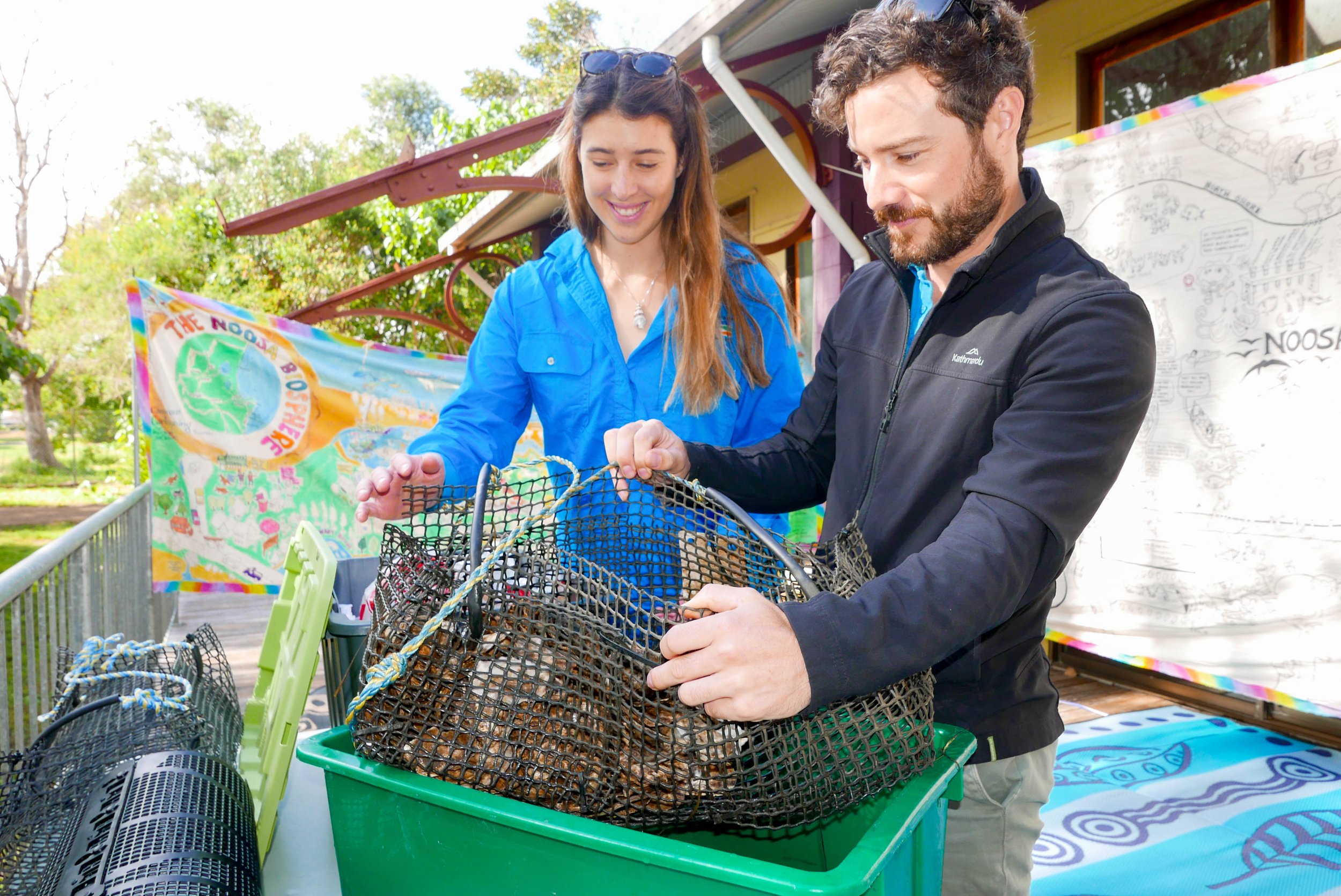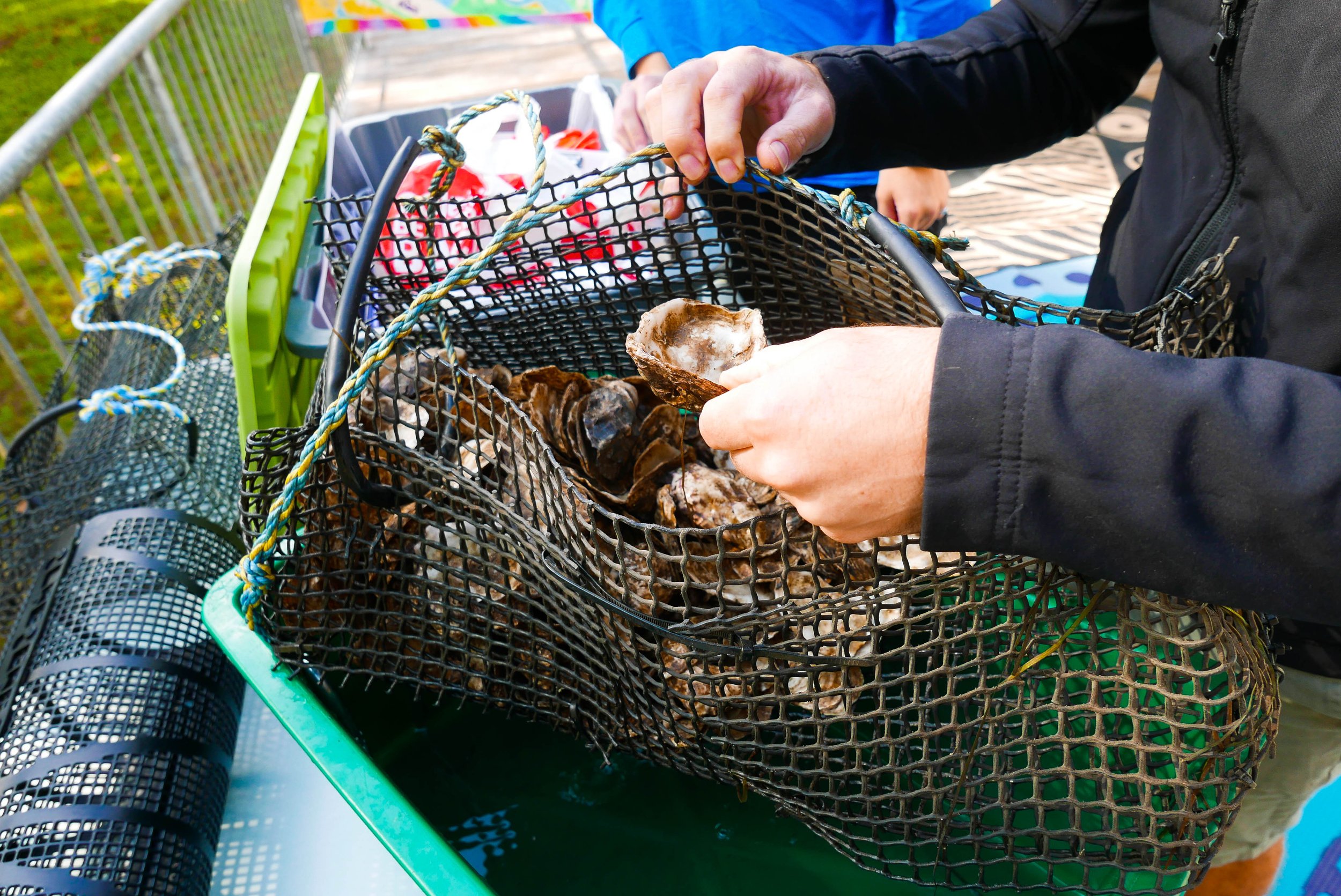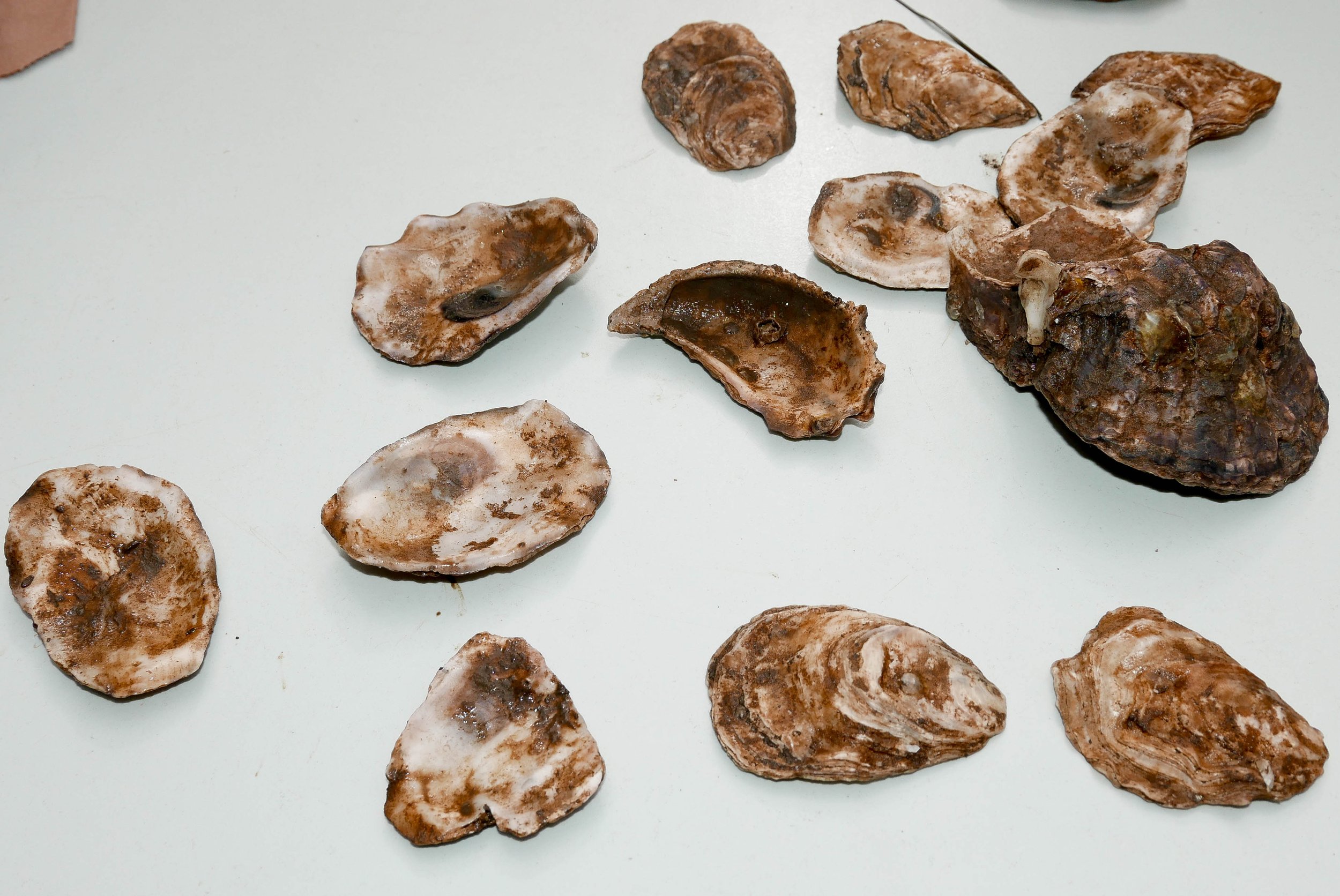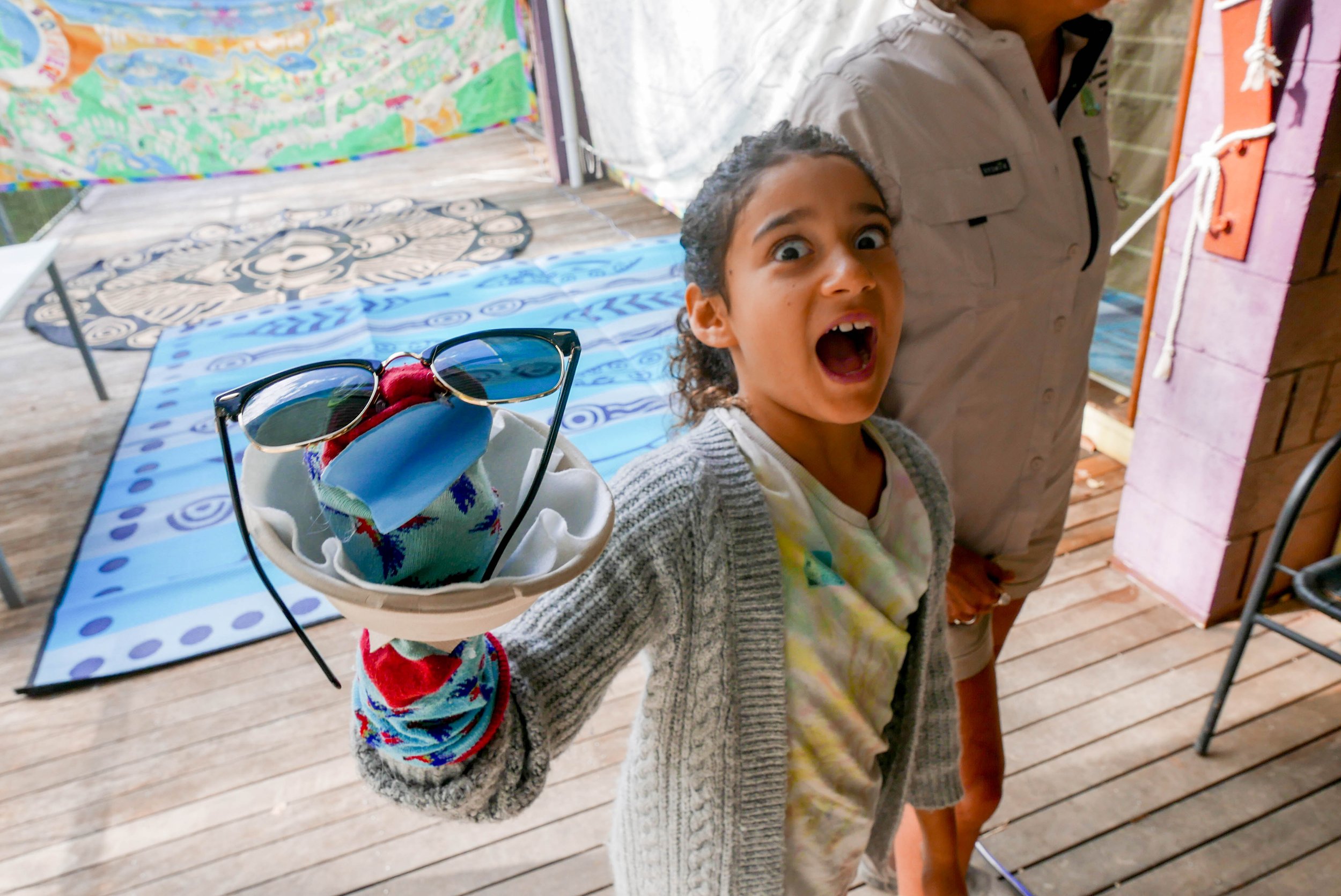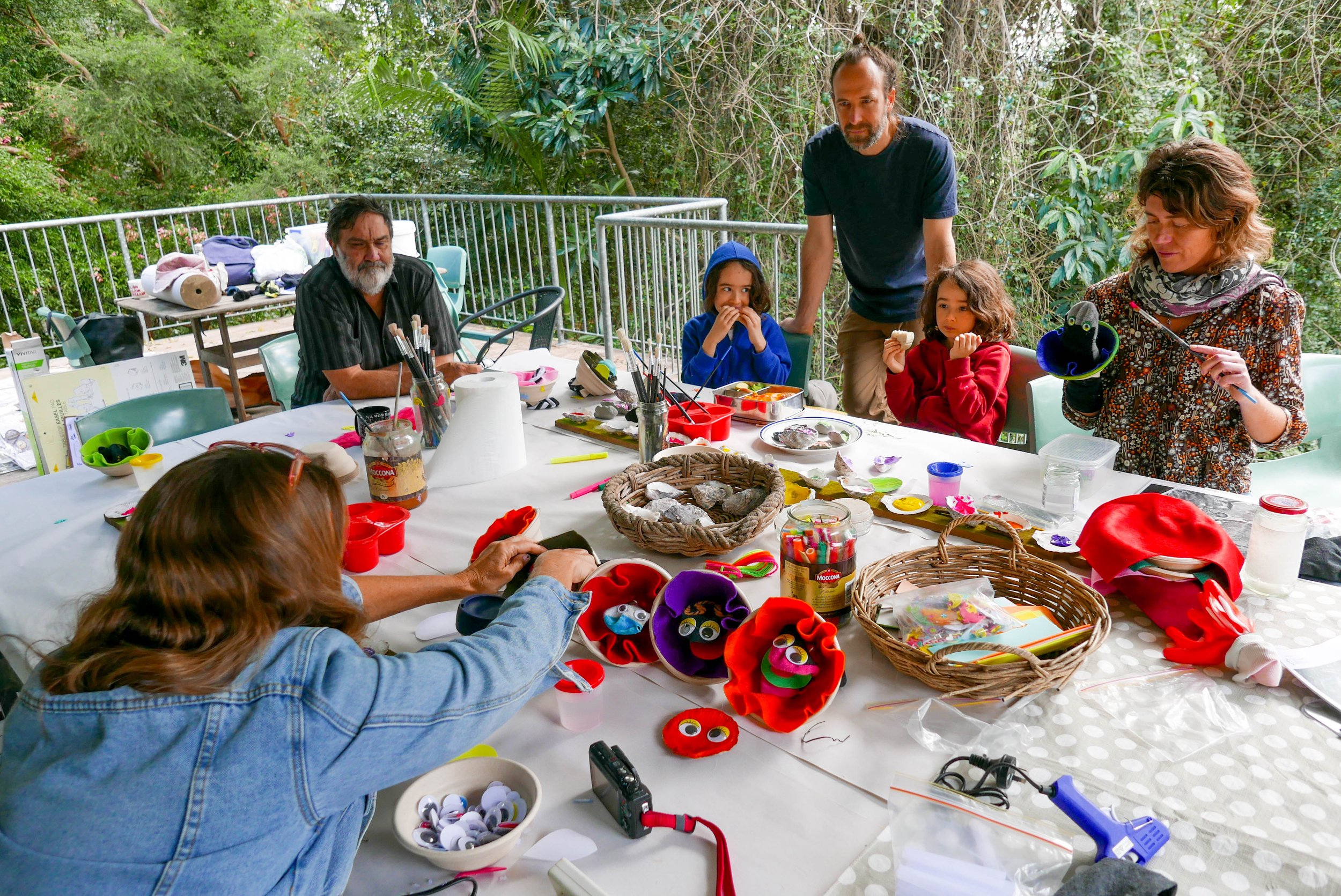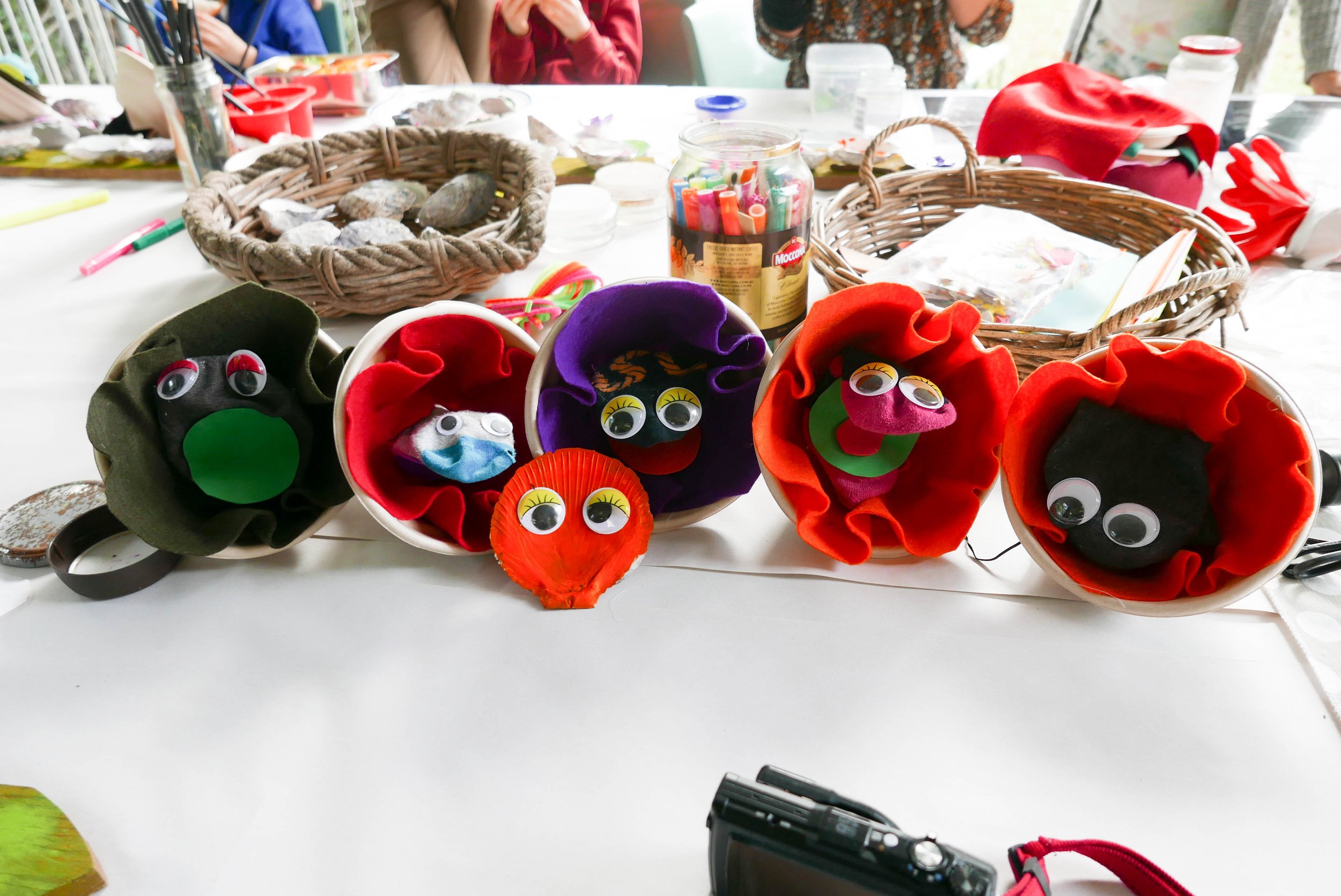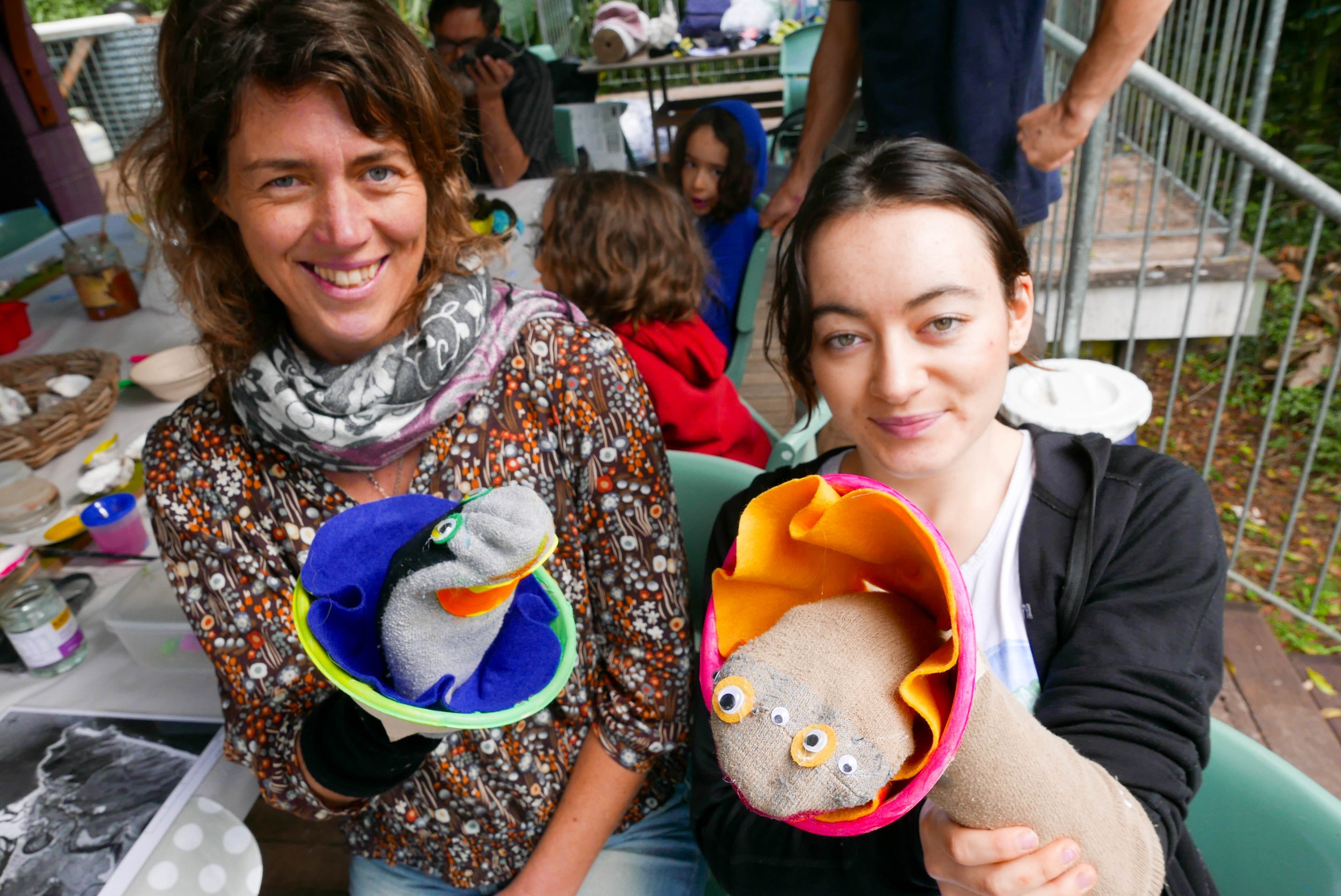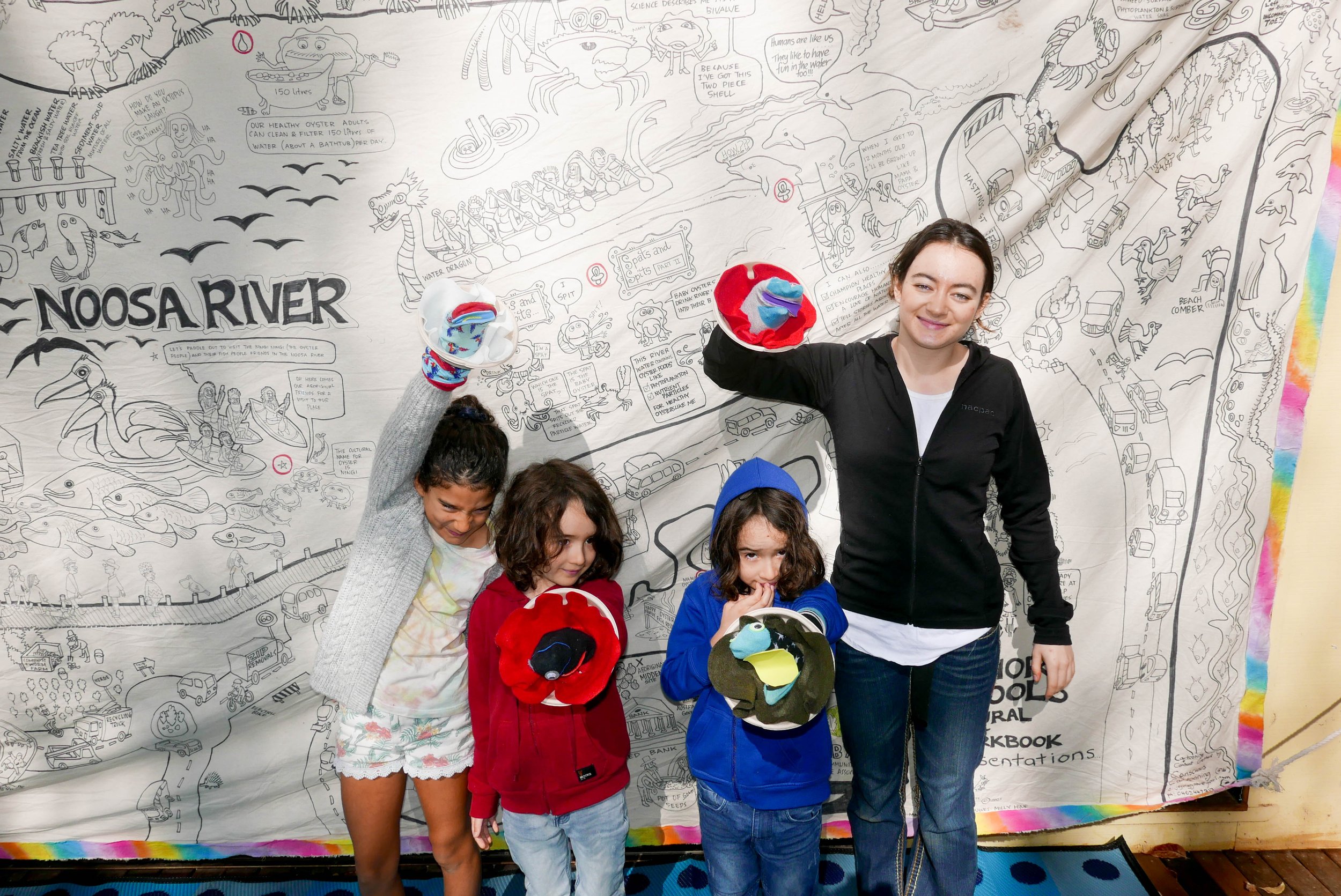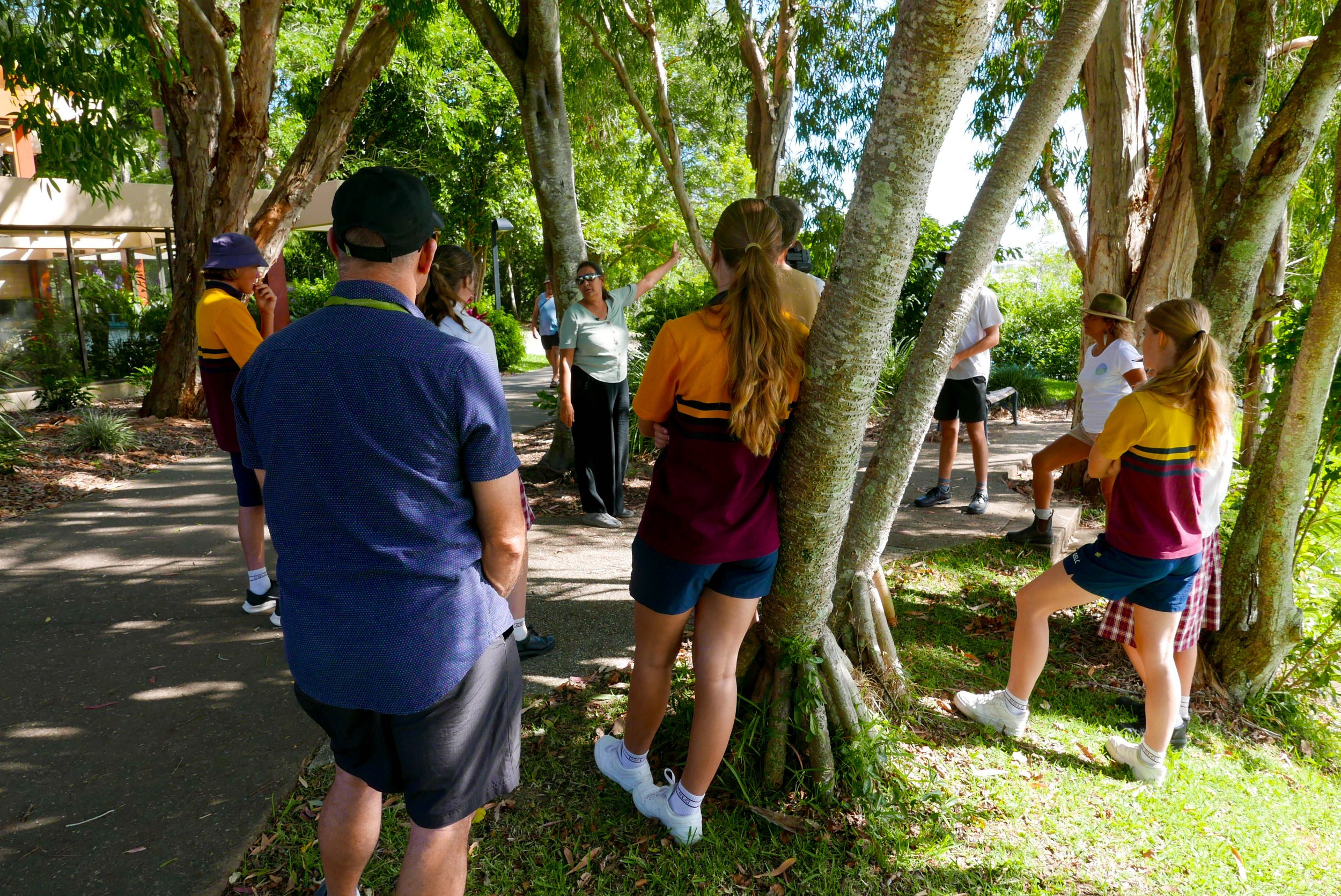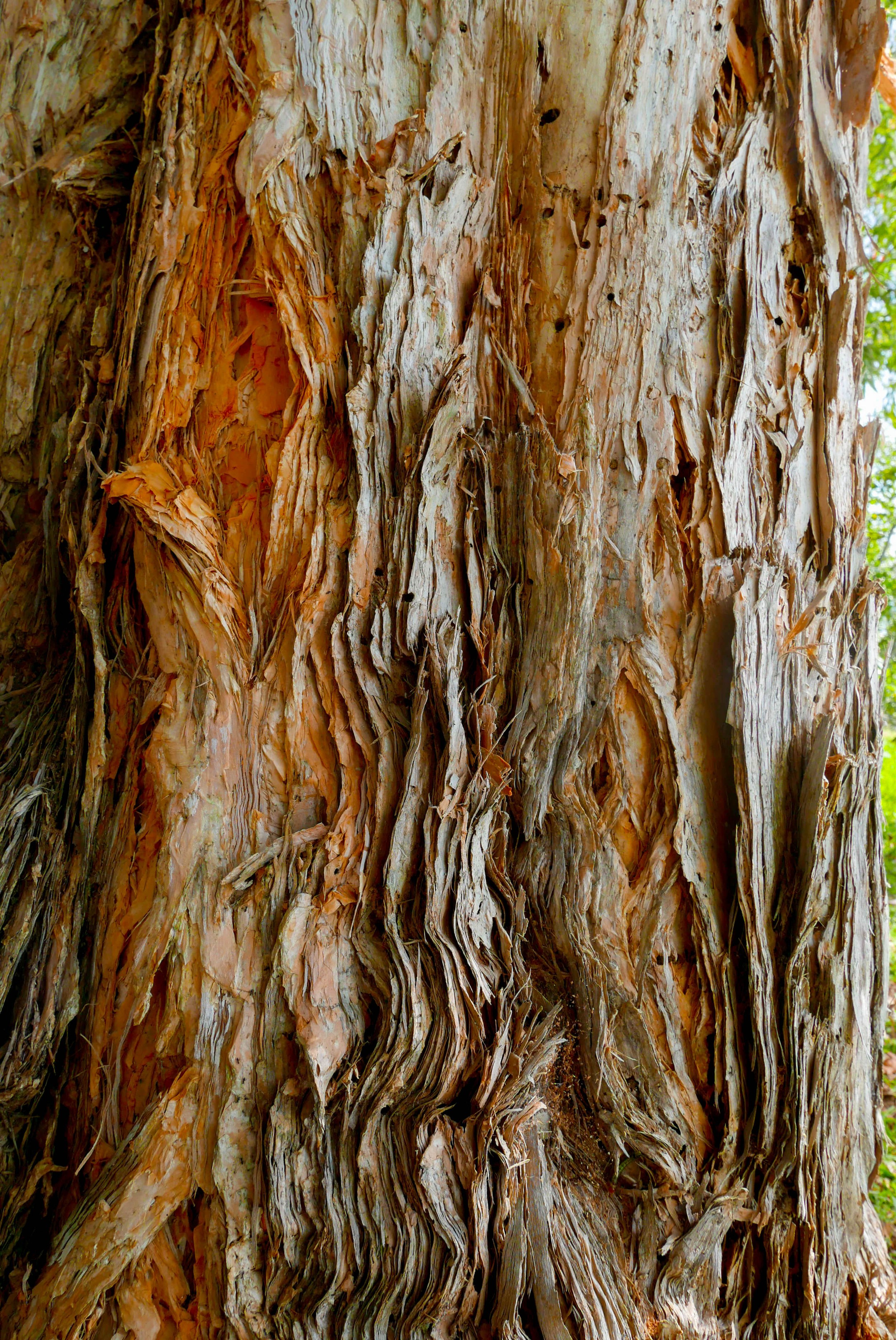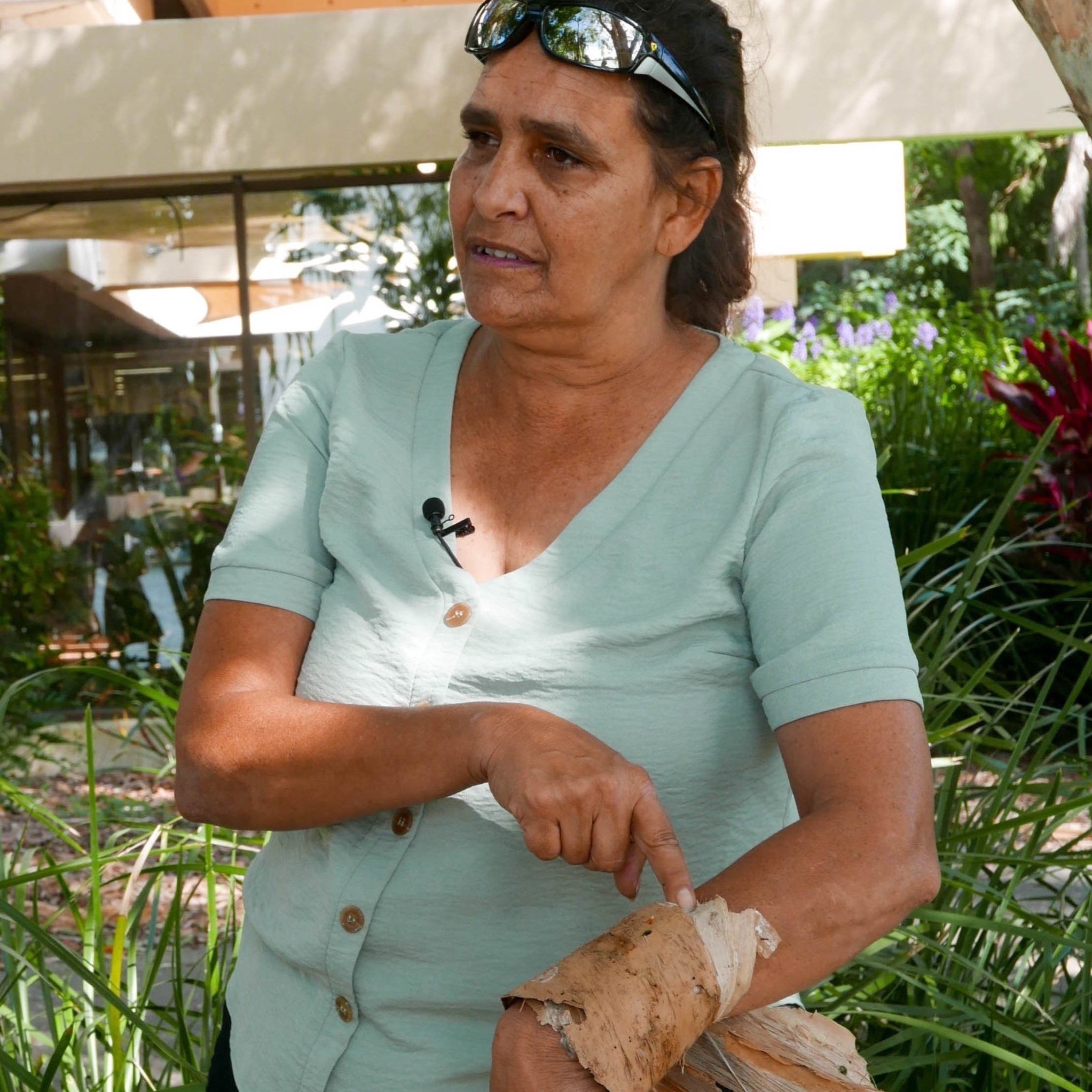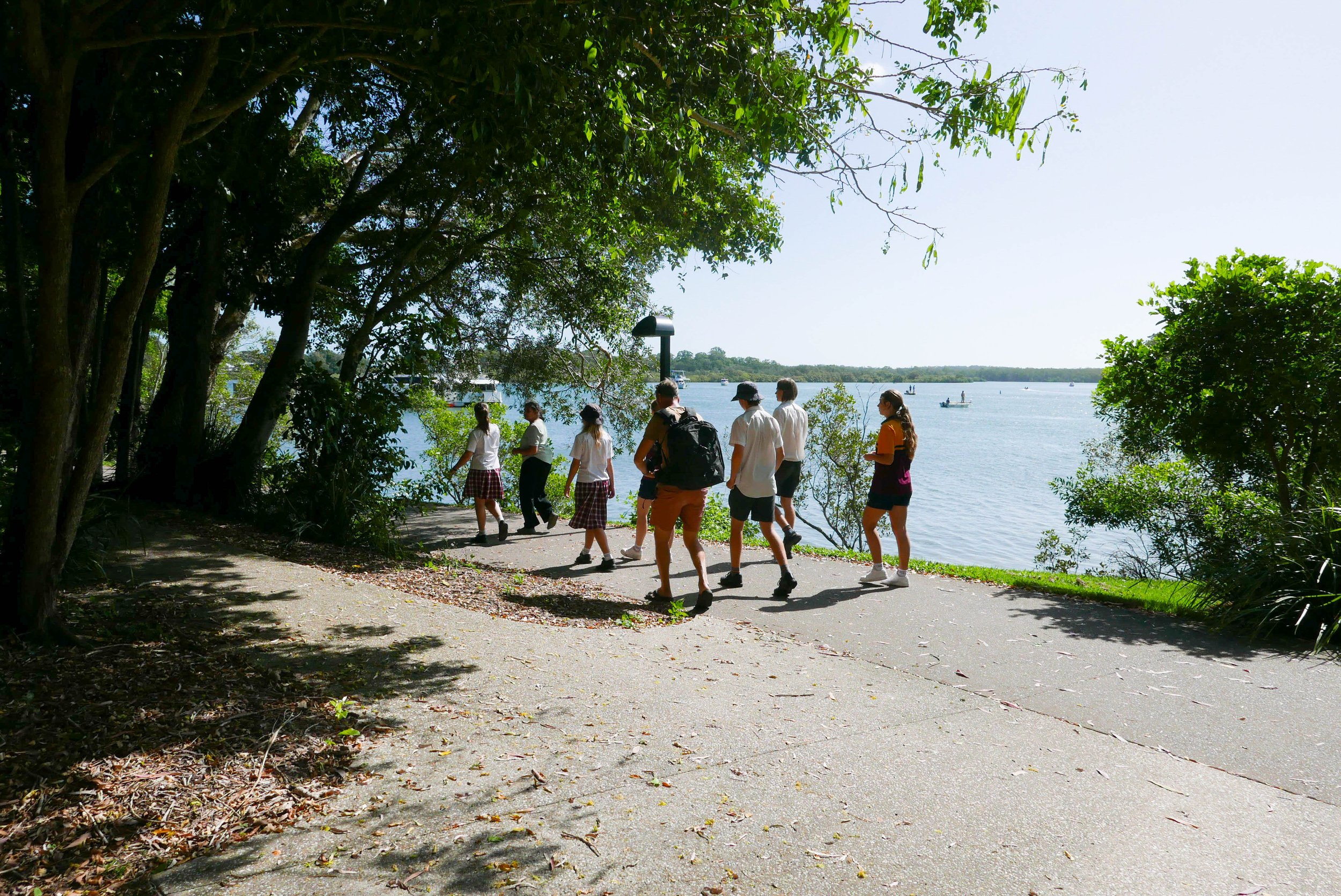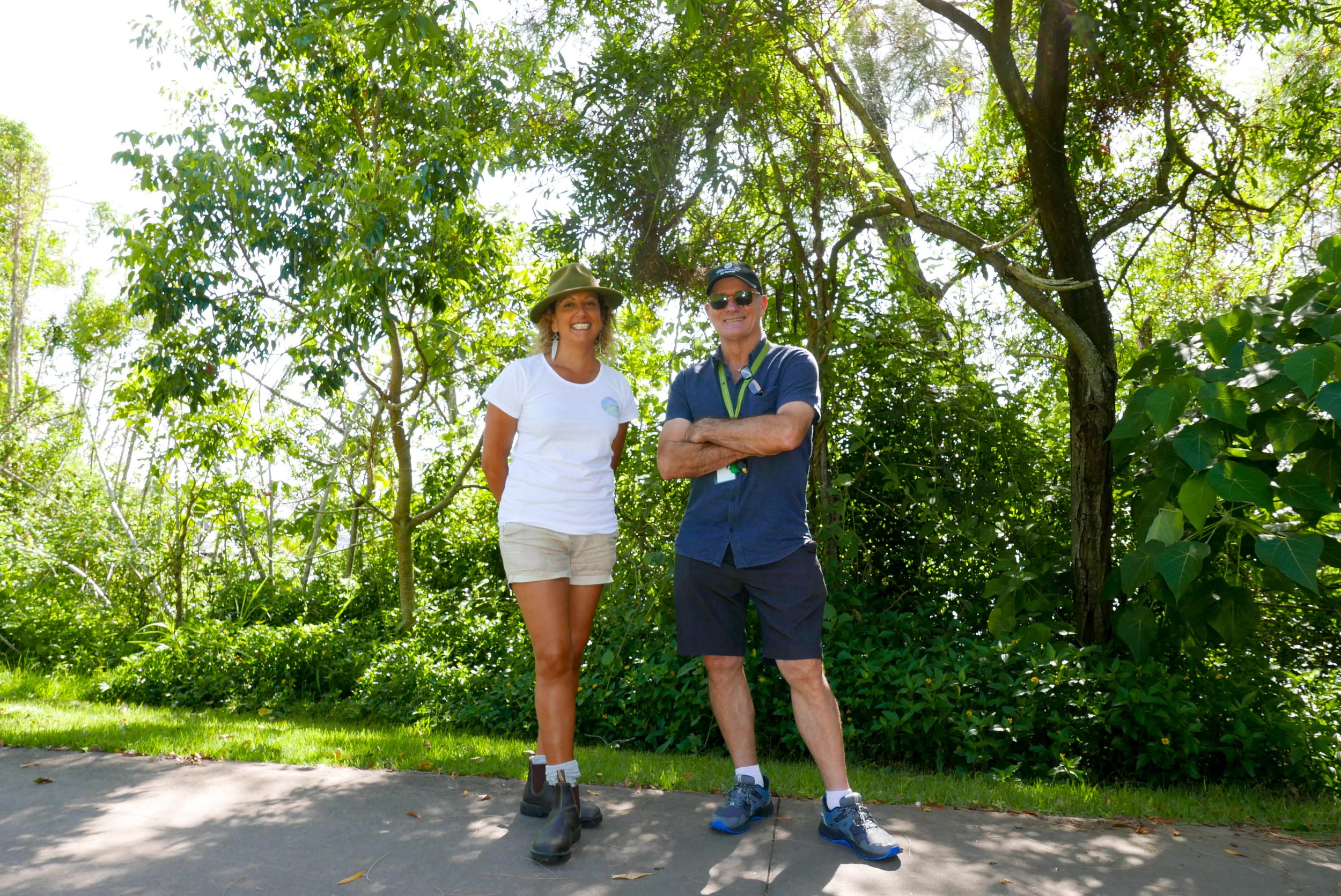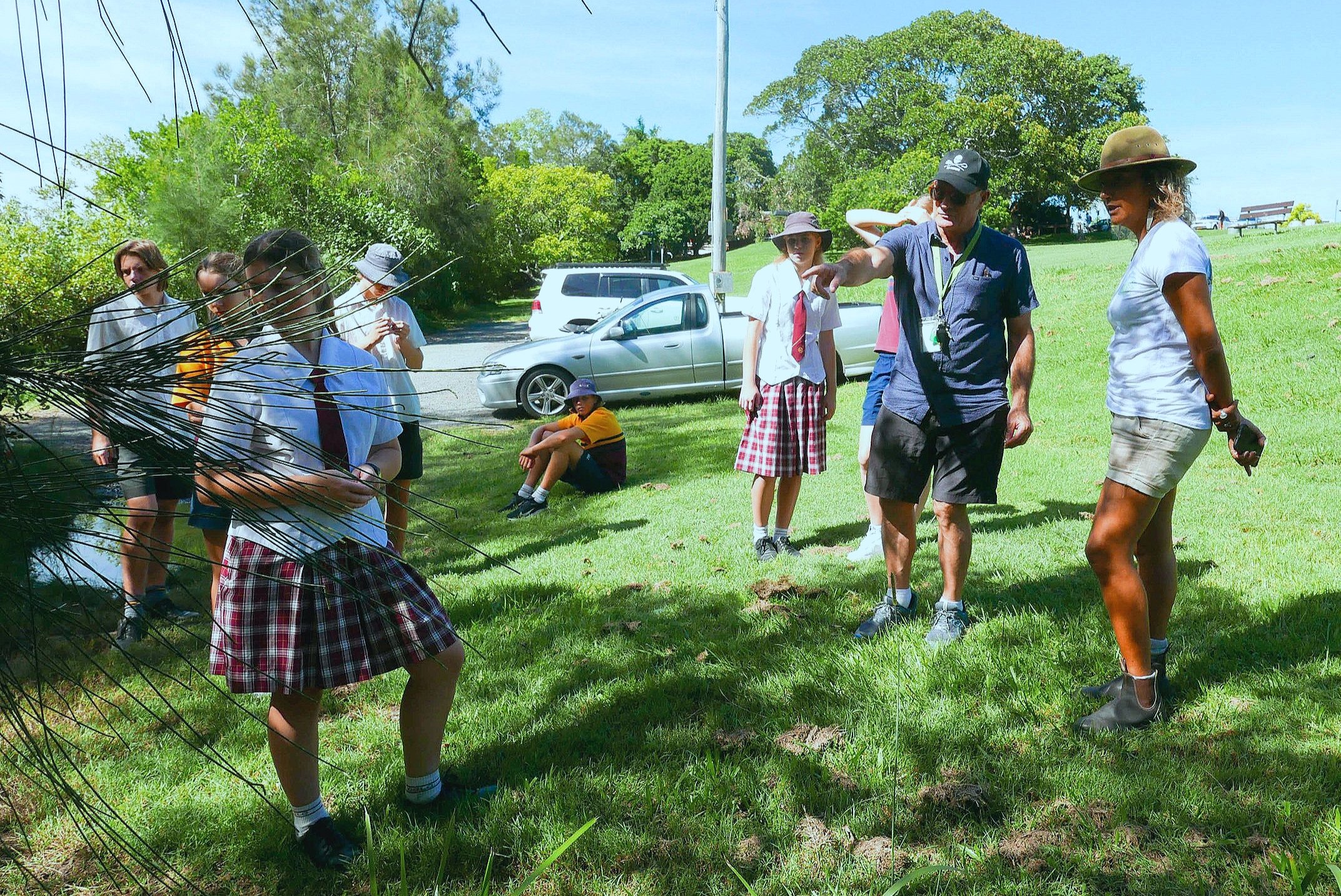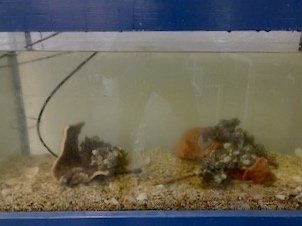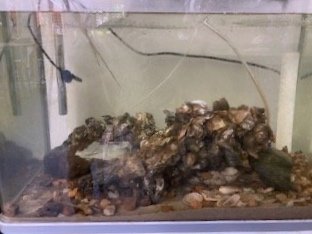Noosa Oyster Reef Restoration Project
Dalia Mikhail (Noosa EEHub), Aunty Beverly Hand (Kabi Kabi TC), Students from Good Shepherd Lutheran College and Craig Moore (GSLC Marine Science Teacher) Front right.
Good Shepherd Lutheran College-Marine Science Students
Students from Year 11 and 12 have commenced their work on the Oyster Regeneration Secondary School Project. The entire cohort of Marine Science students have completed a Noosa River history talk with Kabi Kabi Traditional Custodian Beverly Hand that detailed the historic uses of the river. The school’s Marine Science Lab has now set up two tanks mimicking the oysters natural environment for the purpose of hypothesis testing. Students will test the impacts of climate change on oyster production and will soon be out on the River conducting species identification and other River health checks.
Restoring the Noosa River’s Oyster Ecosystems
In collaboration with The Nature Conservancy (TNC), Noosa EE Hub has created a Marine Science based curriculum for Year 10-12. The curriculum supports the work being undertaken by TNC in the Noosa River to restore important oyster ecosystems. By restoring the shellfish ecosystems of the river, the project will help boost estuary health by cleaning the water, enhancing biodiversity, and increasing fish life.
The Noosa River is part of the Noosa Biosphere — a UNESCO recognised area. The River systems are threatened by extensive modification and intense urbanisation. Oyster restoration helps increase the complexity of life in the river and enhances the river’s ability to resist and respond to various impacts. As such, oysters play an incredibly important role in the river’s health.
Noosa EEHub is proud to support this restoration project by connecting students to this vital real life work. The project aims to rebuild 60 shellfish ecosystems across Australia. If achieved it will mean Australia is the first country in the world to have recovered a critically endangered marine ecosystem.
Kabi Kabi Traditional Custodian Beverly Hand has delivered talks on the traditional practices for the River that promote a sustainable environment for its ecosystems. The knowledge of Traditional Custodians is essential and advantageous to the work of restoring ecosystems and teaching our regions youth.
The Oyster Regeneration Project offers students the opportunity to apply their scientific knowledge to a real life issue. All schools are invited to participate in a range of fully funded programs which include:
Oyster Gardening - in collaboration with NICA students can adopt an oyster bag which is used to grow oyster spats. The students are then responsible for monitoring the growth of the spats at certain public locations as per the projects specifications.
Fish ID and underwater monitoring - using underwater video schools can participate in fish ID exercises to better understand the make up of our Noosa River ecosystems.
In-school tank experiments - does your school have access to live tank systems? If so we can replicate the environments for oyster growth and test differing hypothesis such as the effects of climate change on oyster production.
These are just some of the ways your school can get involved. For further inquiry contact us
Another area of cross curricular education is the opportunity to learn from Kabi Kabi educators about the rich history of the Noosa River and its uses by First Nations people. Did you know that there was a large middens in the (now) Tewantin area which spanned kilometres and several metres high? Middens were formed from the discarded shells from the seafood eaten by the Kabi Kabi and were common along the banks of the Noosa River and Weyba, Doonella, Cooroibah and Cootharaba Lakes. These large accumulations of shell material were considered a ready resource by the European settlers and were used as a road base in the early days of Tewantin settlement. This is a mere sample of the rich knowledge to learn about our local community.
River Health
Building Resilience School Holiday Program
The 2022 June/July School Holiday Program featured both a primary and secondary opportunity for oyster discussions with the primary school program being delivered by Noosa Community Biosphere Association’s (NCBA) Primary School Program.
The participants had plenty of fun engaging in creating their own oyster puppets and exploring the trial Oyster Gardening baskets for new life. Noosa EEHub also hosted a secondary stduents and general public masterclass at the Noosa Marina. Alex Western and Maddi Brown, NICA’s Marine Biologists helped us explore the oyster bags and identify the creatures populating them. We also heard from Envirotech about their range of Certificate courses in Marine Restoration. A great morning of educational exploration of this important river system.
The Noosa Oyster Reef Regeneration project will commence construction in the Noosa River from July, this program will commence near the Tewantin Boat Ramp with the first reef site and residents should expect to see the start fo the rock substrate works above water.
